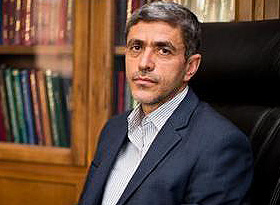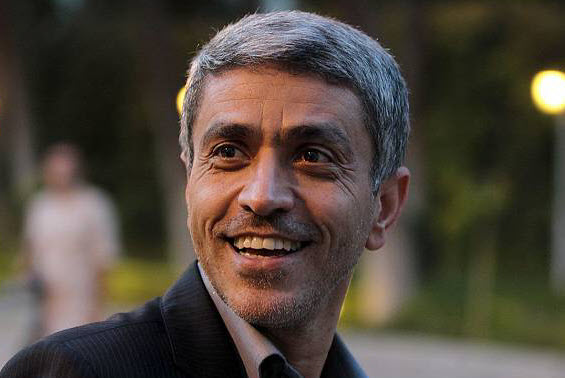October 11-13
The new minister of the economy says Iranians are wrong to think that the lifting of sanctions will solve their economic woes.


Ali Tayeb-nia, who won more votes in the Majlis than any cabinet nominee in the history of the Islamic Republic (all but 10), said sanctions aggravate Iran’s economic problems, but do not cause them.
He warned that Iranians are in for a bumpy ride if they think they can just sit back and wait for the lifting of sanctions and then cruise along.
Tayeb-nia said the main cause of Iran’s economic ills is mismanagement.
Many in Iran have said that mismanagement by the Ahmadi-nejad Administration was a bugger problem than sanctions. But Tayeb-nia did not blame Ahmadi-nejad. While he was not specific, it was clear that he was talking about systemic mismanagement and not just policies that the Rohani Administration is chucking overboard.
“It is a strategic mistake to spend our energy exclusively on the sanctions issue,” Tayeb-nia said, clearly aiming to shift public discussion away from sanctions.
“Economic inefficiency, unsound policies, and unfavorable international conditions as the result of the sanctions are the three main reasons behind our current economic situation,” he said.
But sanctions, he said, are secondary. “The sanctions, despite their breadth, are not an initiating factor, but an aggravating one.”
He said, “It will be a strategic mistake to put all our effort into reducing the sanctions, because then we will lose sight of the initiating factors.”
The minister then went through a laundry list of seven elements that he says the government and country must address to create a sound economy. They are:
• The use of oil revenues for the government’s operating budget. This criticism of the reliance on oil revenues dates back to before the revolution and was one of the key issues that President Rafsanjani sought to tackle, without success, in his two terms from 1989 to 1997.
• Instability and indiscipline in financial policy. Government agencies issue and change rules and regulations almost daily, unlike in the US where draft rules are published and public comments taken and the changes aired fully in public.
• The unacceptable share of tax revenue in the government’s income. This is really the flip side to the oil revenues issue. Iran collects little in taxes, largely because of the ease with which it can resort to oil revenues. There are no wounded citizens to complain when oil revenues are tapped.
• Insufficient foreign investment. This was small before sanctions and is non-existent now. Iran has never been viewed as especially hospitable to foreign investment, not even before the revolution.
• The meager role of the private sector in the economy. The statist policy began under Reza Shah in the 1920s. But the public sector was severely curtailed after the revolution when firms owned by opponents of the revolution were nationalized en masse.
• Ambiguity in economic information. Different agencies release different statistics. Some numbers that are released are not the numbers used internally. This is a huge problem even when there is no conscious effort to finagle the statistics.
• Unsuitable business environment. It is hard for people to get licenses to start a business and once they do start they are often harassed by bureaucrats and tax collectors.
Tayeb-nia said, “As long as these initiating factors are not mended and controlled, our economy will be a weak and vulnerable one.”






















